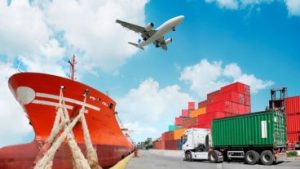Argentina asks the IMF for a bailout
Macri announces that he has spoken with Christine Lagarde approve that financial support can be gained
Buenos Aires, MAY 9, 2018, Argentina can not bend to the dollar and will again request assistance from the International Monetary Fund (IMF) after 15 years. In a recorded message, President Mauricio Macri announced on Tuesday that he had spoken with the IMF president, Christine Lagarde, to ask for his support. Macri said that his country needs the money, although he has not said how much he will ask, to overcome an «increasingly complex» international context, with higher interest rates.
On Tuesday, The request for help from the IMF is the story of a failure. And it supposes the payment of a very high political cost for Macri, at the head of a country that for years accused the Fund of being behind wild adjustments and great economic crises. But Macri had no other choice, so much so that he decided to take responsibility for the announcement himself. In a hostile context for the currencies of the region, the Argentine peso showed its vulnerability. The currency reached 23.50 pesos mid-morning, despite the extraordinary measures to avoid it. During the last week, the central bank rose from 32.25% to 40% interest rates, in an attempt to discourage investors who were fleeing at full speed of the peso and were pouring into the US currency. The decision calmed the markets, but the spring lasted only until today. The stock market accompanied the bad weather with a fall of almost 5% in the middle of the wheel
The government announced last week that it will cut some $ 3 billion of public spending and reduce the States dependence on foreign money. But none of that was enough. Investors no longer trust the Argentine economy, despite the international support that Macri has deserved since coming to power. While the dollar rose 5.3% in Buenos Aires, Colombia depreciated its currency 1.4%, Chile 1.3% and Brazil 0.8%. Sustaining the peso cost the Argentine Central Bank more than 5,000 million dollars from Friday of last week.The pesos resistance strategy can now have serious consequences for the economy, at a time when it is trying to stop inflation that is expected to be 20% by 2018, the second highest in the region after Venezuela. Urged by fresh funds, and faced with the stampede of investors, Macri will return to the IMF. The talks, he said, «will start today.» «This will give us more support to face this new scenario, I made this decision thinking of the best interest of the Argentine people, not lying to them, as so many times has been done». Hours later, Lagarde issued a statement confirming the start of negotiations with Argentina, without giving details: «Argentina is a valuable member of the International Monetary Fund, I appreciate the statement that President Macri made today and I look forward to continuing our collaboration with Argentina, discussions have begun on how we can work together to strengthen the Argentine economy and we will carry out these conversations shortly. »
The IMF, a history of misunderstandings
The first time that Argentina received money from the IMF was in 1957, when the military that had overthrown Juan Perón asked for 75 million dollars. The last in January and September 2003, for 10 billion dollars. The relationship ended in 2006, when President Néstor Kirchner canceled the total debt. It was an economic decision, but above all politics. For many Argentines, the IMF was and is synonymous with adjustment and its role in the 2001 debacle, where it withdrew financing from the government of Fernando de la Rua, was questioned even outside the South American country.
Criticism of the IMF was one of the main banners of Kirchnerism, in line with the regional governments of the left that marked South American politics during the last 15 years. But the payment to the IMF was not a break, because Argentina never left it. It allowed him, however, to reject the technical evaluation visits to which the Agency obliges its partners. It was a time when the tailwind accompanied emerging economies, with record prices for raw materials and rates close to zero. Argentina was financed during all that time with domestic debt, in pesos. But that changed with the arrival of Macri. The dollar exposure of the Argentine debt is huge, much higher than that of other emerging countries. Between 2016 and 2017, the Government issued bonds for 59,000 million dollars, almost twice as much as Saudi Arabia, the second on the podium, and three times the third, Indonesia.
Lagarde was last March in Argentina, in the framework of the summit of finance ministers of the G20. It brought as a message that the IMF had changed, attentive to the social consequences of its macroeconomic recommendations. «Sometimes we went too far and too fast for society to take it in. And we have already analyzed that we underestimate the impact of multipliers,»
Lagarde took advantage of his trip to Argentina, the first of a senior executive of the IMF in 11 years, to support the policy of «gradualism» applied by Macri. At that time there was no talk of financial support, but the good tune was evident. «It is an IMF that is very different from the one it was 20 years ago, it has learned from the lessons of the past, and has supported the gradual program of Argentina, I am sure we can agree on a program that supports our direction,» said Finance Minister Nicolás Dujovne . It was an attempt to placate the political storm that is looming





